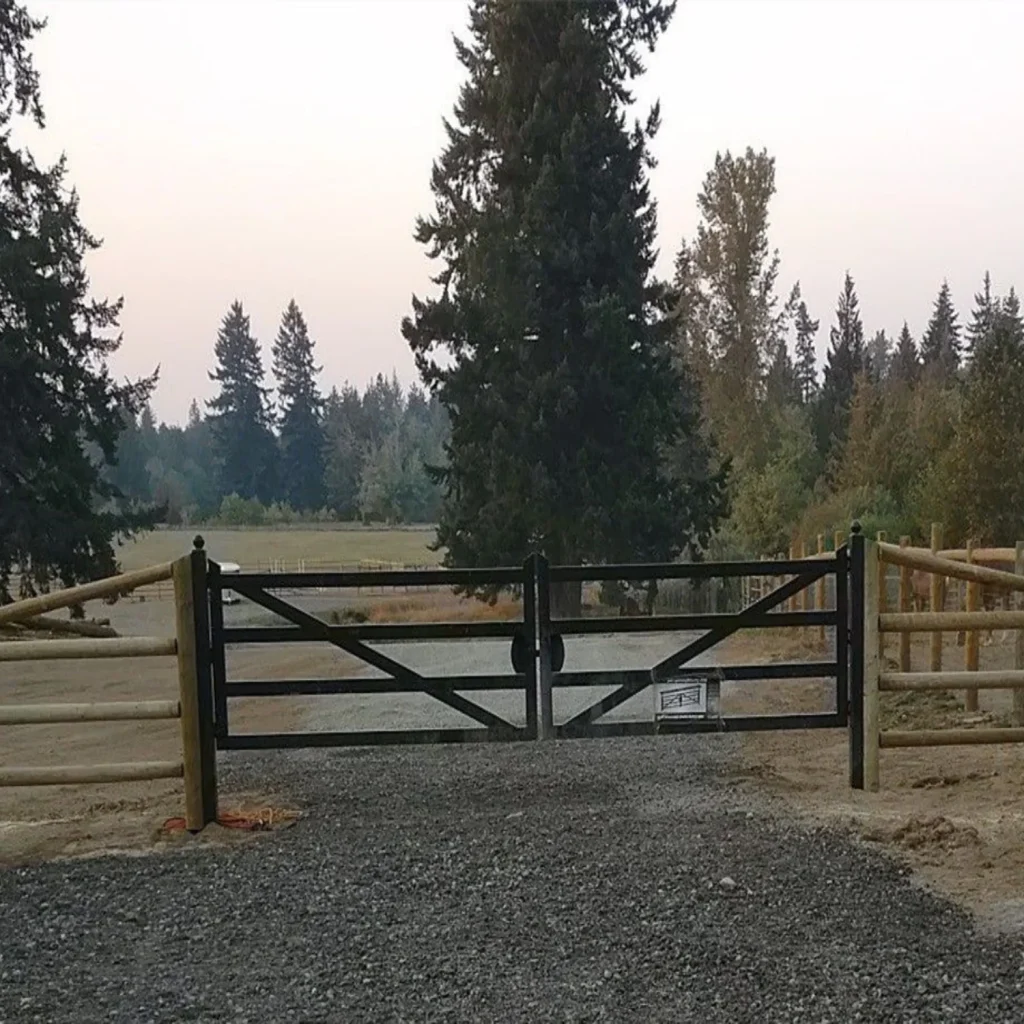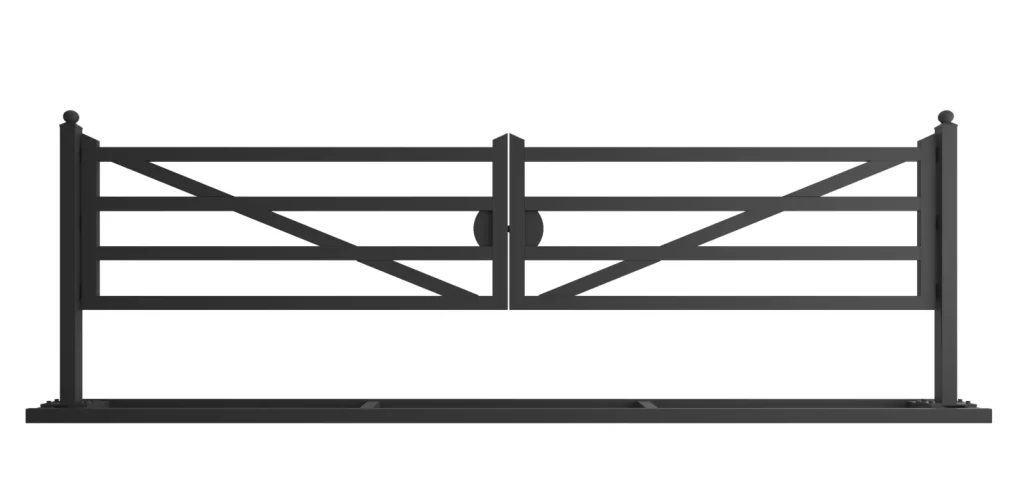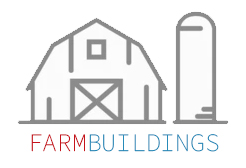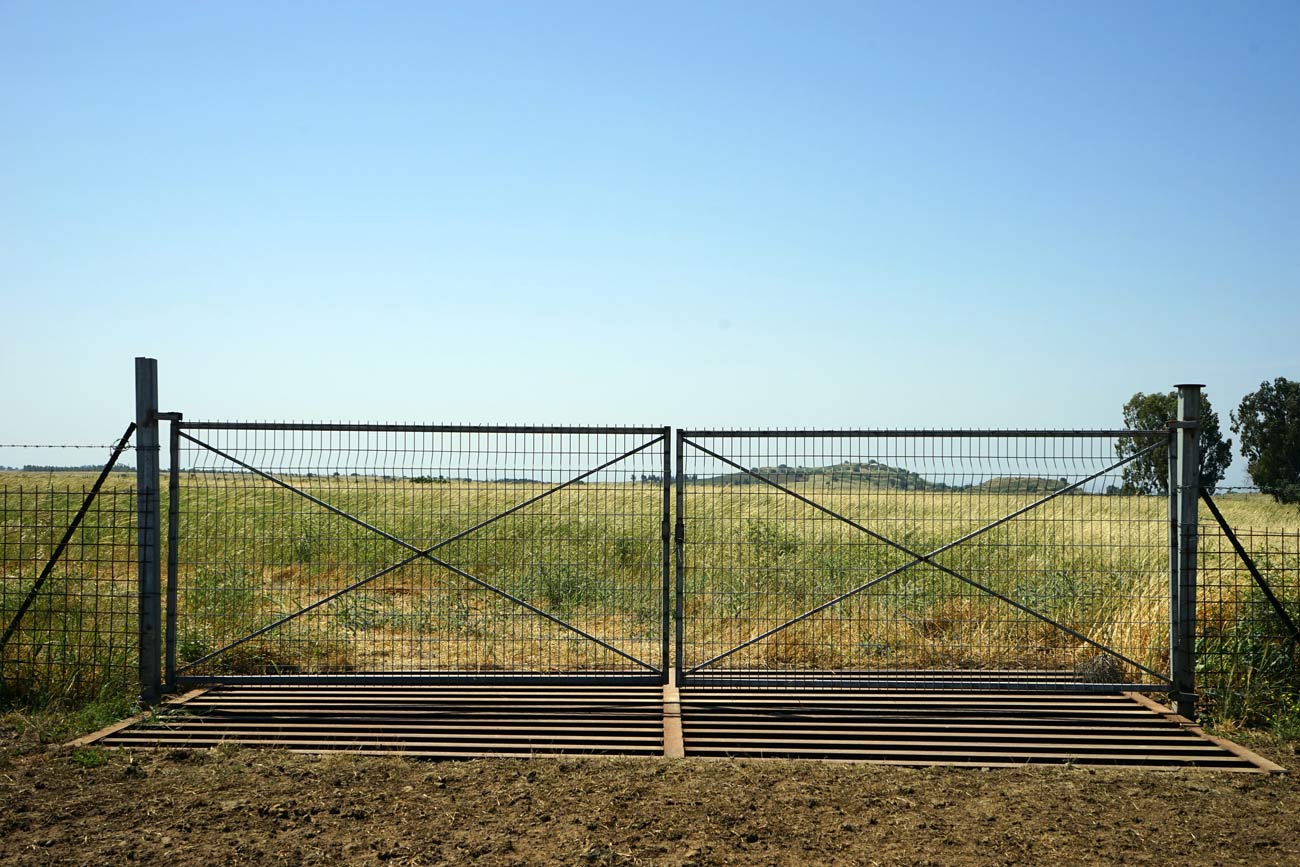Farm Metal Gates (Industrial Driveway & Fencing)
Farm gates are really your property’s first layer of protection, keeping livestock, equipment, and crops a bit safer while managing who comes and goes. They take a beating from tractors, trucks, and the weather, so you want something that can actually hold up out there.
Getting the right gate is about matching size, solid materials, and hardware that won’t let you down after a couple seasons. Farm gates from major suppliers come in a wide range, from bare-bones bar gates to those fancy automated setups you can open from your cab.
Pick the wrong one, and you’re in for a headache—think repairs, security gaps, and daily irritation. Knowing your options for materials, sizing, and features makes it way easier to land on something that actually fits your farm and your wallet.
Understanding Driveway Gates For Farms

Farm driveway gates aren’t just about letting people in or out—they’re barriers, sure, but they also have to play nice with oversized tractors and whatever else you’re hauling. They’ve got to be tough, but also not a pain to use every day.
Purpose and Benefits
Security and Access Control
Farm driveway gates keep out the folks you don’t want, while helping you control who gets in. Some of these setups even work with security cameras and biometric locks if you’re into that level of protection.
These days, a lot of gates can tie into electronic monitoring. You can keep tabs on who’s coming and going, even if you’re nowhere near the front drive.
Equipment Accommodation
You need a gate wide enough for tractors, combines, delivery trucks—you name it. Proper gate sizing is what keeps your gear moving without annoying delays or busted mirrors.
Most farms need a gate between 12 and 20 feet wide, depending on what’s rolling through. Don’t forget about height if you’re hauling hay or tall machinery.
Property Value Enhancement
Let’s be honest—a good-looking farm gate leaves a solid first impression, whether it’s for visitors or someone eyeing your place to buy. Gate aesthetics run the gamut from classic wood to modern metal, so you can actually show off a bit of personality.
And hey, a quality gate can cut down on road noise and clearly mark where your property starts, all while making the entrance look inviting.
Common Gate Types for Driveways

There are really two main ways farm driveway gates work, depending on how you want them to open. Each style has its own perks.
Swing Gates are kind of like giant doors—they open inward or outward on hinges. Swing gates operate on hinges, and honestly, they’re what you’ll see most often on farms. Just remember, you need enough room on either side for them to open all the way.
Single swing gates are fine for openings up to 12 feet. If you need more width, double swing gates split in the middle and handle up to about 24 feet.
Sliding Gates move sideways along a track, so they’re perfect if your driveway is tight or you don’t have room for a gate to swing. Sliding gates work well for small spaces—just make sure you’ve got enough fence line for them to slide open.
Cantilever sliding gates hang from a track above the ground, while track sliding gates roll along a ground rail. Each has its uses, depending on your terrain and needs.
| Gate Type | Best For | Space Needed |
|---|---|---|
| Single Swing | Narrow driveways | Clear swing area |
| Double Swing | Wide driveways | Clear swing area both sides |
| Track Sliding | Limited swing space | Fence line clearance |
| Cantilever | Uneven ground | Fence line clearance |
Different types of driveway gates can be automated with motors and remote controls, which is handy if your hands are full or you just don’t want to get out in the rain. Manual gates still work fine for lighter setups.
Frequently Asked Questions
People always have questions about gate materials, sizing, and what it’ll cost to get the job done. Custom designs and finding a trustworthy supplier come up a lot too—everyone wants something that’ll last and look good.
What factors should be considered when selecting a farm driveway gate?
First off, think about how much traffic the gate will see. Heavy equipment and livestock call for wider, beefier gates than a standard car entrance.
Weather can really mess with gates. High winds? You’ll need stronger posts and hinges. Lots of rain or snow? Go for materials that won’t rust out in a year.
Security needs are all over the map. Automated gates with remotes or keypads are great if you want convenience and extra protection, but they’re pricier than basic manual ones.
Maintenance varies by material. Metal’s lower hassle than wood, but if something does break, you might need a pro to fix it.
Which materials offer the best durability for farm driveway gates?
Steel’s the long-haul champ—galvanized steel especially, since it shrugs off rust and handles heavy use.
Aluminum’s a solid runner-up. It’s lighter, so it’s easier on electric openers, but still holds up well.
If you love the look of wood, go for cedar or redwood—they last longer than pine. But be ready for regular maintenance.
Composites are catching on too. They’re pricey at first but need almost no upkeep, which can save money in the long run.
How should one determine the appropriate size for a farm driveway gate?
Start with your biggest equipment—tractors, trailers, whatever. If it’s wide, you’ll need a 14-16 foot gate to get through without a headache.
Single gates are fine up to about 12 feet. Anything wider, and you’ll want a double gate so it doesn’t sag or warp.
Height depends on what you’re keeping in (or out). Most gates are 4 to 6 feet tall, depending on your animals and privacy needs.
Make sure there’s room for the gate to swing open all the way—nothing worse than hitting a tree or barn every time you open it.
What are the typical costs associated with installing a farm driveway gate?
Basic manual gates run anywhere from $800 to $3,500, depending on what you pick. Steel’s pricier than wood, but you’ll get more years out of it.
Paying someone to install it adds another $500 to $1,500, give or take. If you need concrete work or wiring for automation, expect to pay more.
Automated gates cost a lot more—think $1,000 to $3,000 extra for motors and controls. Solar panels tack on another $500 to $800 if you’re off the grid.
Don’t forget permits—usually $50 to $200, and you might need engineering approval for the fancier setups.
Can farm driveway gates be custom designed to match specific property aesthetics?
Absolutely. Most companies offer custom colors, styles, and decorative extras. Powder coating’s great for matching other buildings and it holds up well.
You can tweak the size, hardware, and even add custom hinges to fit your style. Want your name or some scrollwork? That’s doable, though it’ll cost more.
Decorative panels, logos, and unique combos—like wood frames with metal mesh—can really make your gate stand out and boost curb appeal.
Mixing materials gives you the best of both worlds: style and practicality. If you’ve got a vision, odds are there’s a way to build it.
What are some reputable suppliers or retailers of farm driveway gates?
Big home improvement chains like Lowe’s usually have metal driveway gates in a handful of standard sizes. They’ll throw in some basic installation help and a warranty, which is nice if you want the process to be mostly hands-off.
Then there are local fence contractors—these folks can actually build and install custom gates, so if your driveway’s a weird size or you want something a little different, they’re probably your best bet. Plus, they know what works in your area and can usually track down the right materials without much fuss.
Farm supply stores are a whole other world. Their gates are built for abuse—think tractors, livestock, all that. If you’re running a real farm, you’ll find they speak your language and stock the heavy-duty stuff you actually need.
And of course, you’ll find a ton of options online. Our favorite vendor for pricing and quality products is Chery Industrial.

